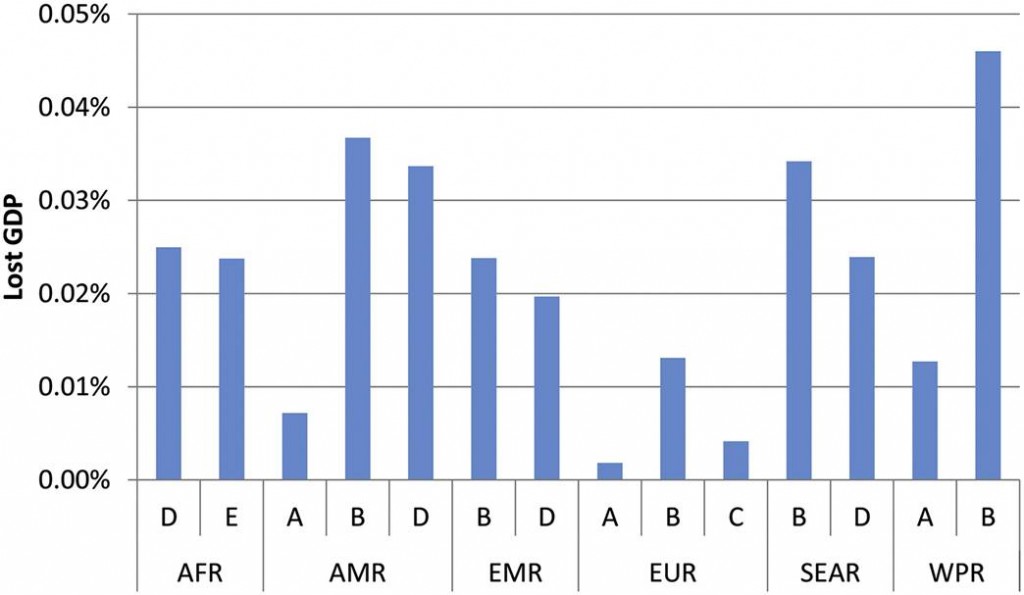The economic impact of not correcting presbyopia. Becoming presbyopic between the ages of 40 and 50, when one is still in full working age, can have a major impact on economic growth when presbyopia is not properly corrected.
In fact, data from a study, jointly conducted by American (Baltimore), Australian (Sydney) and South African (Durban) universities, detailing the economic weight, on a global scale, of the loss of potential economic productivity due to the failure to correct presbyopia or inadequate correction of presbyopia have been published. The study is based on the latest census data, combined with: estimated prevalence of presbyopia, age of onset, employment rate, GDP (Gross Domestic Product) per capita, weighted near vision disability weights from the Global Burden of Disease 2010 study. The study's data traces the overall situation as of 2011, when there were an estimated 1.272 billion cases of presbyopia worldwide. A total of 244 million cases of uncorrected presbyopia were recorded in people under 50 years of age, with an associated loss of potential productivity of $11.023 billion, or about 0.016% of global GDP. If one accepts the assumption that all presbyopic patients under the age of 65 would have remained productive, then the loss would be as high as $25,367 billion, or about 0.037% of global GDP.

The impact is most significant in low-income countries, where presbyopia remains uncorrected in 94% of cases. Just think that correcting presbyopia to the levels achieved in Europe would reduce the loss of productivity by approximately USD 1,390 billion. This is really something to think about! For a complete and in-depth overview of the latest developments in surgical correction of presbyopia, we recommend that you do not miss the symposium 'Presbyopia: the beginning of a new era', to be held in Barcelona on 7 September, during the ESCRS 2015 congress.
For more information, please read the open access research in Ophthalmology of July, and we also bring you our review of presbyopia surgery:
- Innovative IOLs: the future is already tomorrow
- The new EDOF IOLs in the correction of presbyopia
– Biometrics and the success of refractive cataract surgery
– New horizons for presbyopia surgery
Dr. Carmelo Chines
Direttore responsabile
